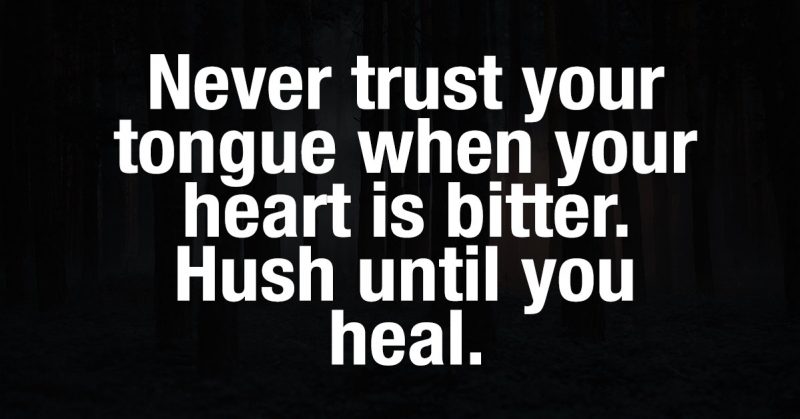Anger is the one human emotion that’s equal to a raging fire. Once it starts, it spreads until it has wreaked massive destruction in its path. Fire is relentlessly destructive and anger works in the same mechanism. Biologically, anger is your body’s natural response to perceived threats. It causes your brain to secrete adrenaline in high volumes, your muscles to constrict, and your heart rate and blood pressure to increase. [1] This is why we use the term “boiling in anger” because you can feel the negative reactions taking place all over your body. When it’s not managed properly, anger can become a serious problem and pose a risk to your well-being and those of others.
It also destroys friendships, relationships, and ruins people emotionally. The words we utter are so powerful, influential, and occasionally, they’d hit harder than physical blows. You can’t always control your actions and utterances when you are angry, so it’s always best to not initiate any altercations or conversations in this state. It’s always better to wait until your nerves are relaxed and you have a tight hold on your emotions, to avoid doing something you’d regret.
Words that murdered a young soul – a true story
Back when I was in my second year in college, I had this amazing friend who was like a sister to me. I was just a struggling student trying to manage the little I had and stay afloat for four years. I hated asking for help because I didn’t want to be the pitiful charity case, but this particular friend was always eager to help me in any way she could. She’d help me with books, food, and when the weather got unbearably cold, she’d let me wear her best fur jackets and boots. She was one of the most amazing people I met in college.
However, she had a pretty powerful temper issue that later destroyed the friendship we’d built from freshman year. We’d gotten to class with a group of other girls one afternoon before exams week and were getting settled in. A girl had dropped her books on a particularly favored seat and my friend moved the books to another table and took over the seat. It was an unfair thing to do but I didn’t know how to call her out. When the original owner of the spot came back, an argument broke out, loudly and ferociously as both girls dragged the seat and my friend’s temper flew off the handle. She called the other girl all sorts of names, body-shamed her, and also made fun of the girl’s poor grades.
My conscience wasn’t dead yet, and so I sheepishly stepped in front of both girls and quietly tried to talk some sense into my friend. Sadly, she misunderstood my intentions and thought I was siding with the other girl. Gestures like that are important to girls and she felt deeply betrayed and hurt. She took a moment and tried to calm down, but the reins slipped out of her hands and she exploded it all on me.
She said a lot of things, exposing to everyone in class how I would have been living on the campus streets or begging for food if it wasn’t for her. She let everyone know that the furry black jacket I was wearing right then belonged to her, just like many others I’d worn to school for a long time. She told me that the next time I’d be starving at night and trying to sleep my hunger away, I can expect no one to hand me her leftovers.
I was utterly shattered but for some reason, I didn’t talk back and I didn’t hate her. Not at that moment and not ever. It’s like I’d known her long enough to know how uncontrollable her anger could get. She’d never gone off on me before but I’d seen it happen with other people. It’s like a device without controls and only stops when the battery is drained. When she goes into one of her episodes, she’d unconsciously try to pull every hurtful word in her arsenal to hurt her opponent and regrets it almost immediately. I was so ashamed of myself, ashamed that everyone knew how rat-poor I was, embarrassed at the conflicting stares of pity and amusement flowing my way. I left the class and went back to my room to “process the whole thing” (code phrase for “cry myself to sleep”).
Later that day, my dear friend came to apologize to me. She was genuinely sorry for what had happened and truly, I wasn’t angry with her. I was deeply hurt but I understood. The whole thing severely affected my very fragile self-esteem and triggered my anxiety, but I still loved her anyway. She needed to manage her anger better and I wasn’t going to let that episode destroy our sisterhood. Sadly, she could never quite bring herself to be friends with me again. I forgave her but she couldn’t forgive herself. She couldn’t move on from the events of that day and we graduated without ever reading together again.
She was a good person with a genuinely kind heart, but that angry episode destroyed a sisterhood that should have lasted forever. Sometimes, thinking back, I try to put some of the blame on myself to feel better about the whole thing. I should have just kept my mouth shut. My friend was actually hurt by my peace-making actions. Maybe, it wasn’t all her fault. I tried to reach out to her again last year, but I was unsuccessful.
It only takes a moment
It takes only one second for your temper to shoot through the roof and the same amount of time to take in a deep breath and calm it down. Anger management is a real concept and not a figment of the imagination. People have real anger issues and these can be sorted out through supportive therapy and lifestyle changes. [2]
It’s important to never speak when your heart is broken or filled with palpable venom. You might end up saying things you’d regret for a long time. Just give it a moment. Take in a deep, refreshing breath. Oxygen going straight to the brain actually helps you feel better. Take time to process your emotions. Gather your thoughts and get a tight leash on your temper.
When you are certain that you feel a bit better, you may then initiate a conversation if it’s important to talk. This way, you can avoid the unnecessary burden of regrets and maintain your relationships.
References
- “Anger management: Your questions answered.” Mayo Clinic. Retrieved October 21, 2020.
- “Controlling anger before it controls you.” APA. Retrieved October 21, 2020.

